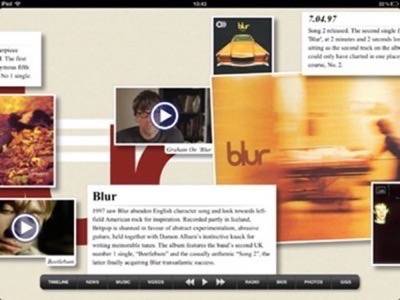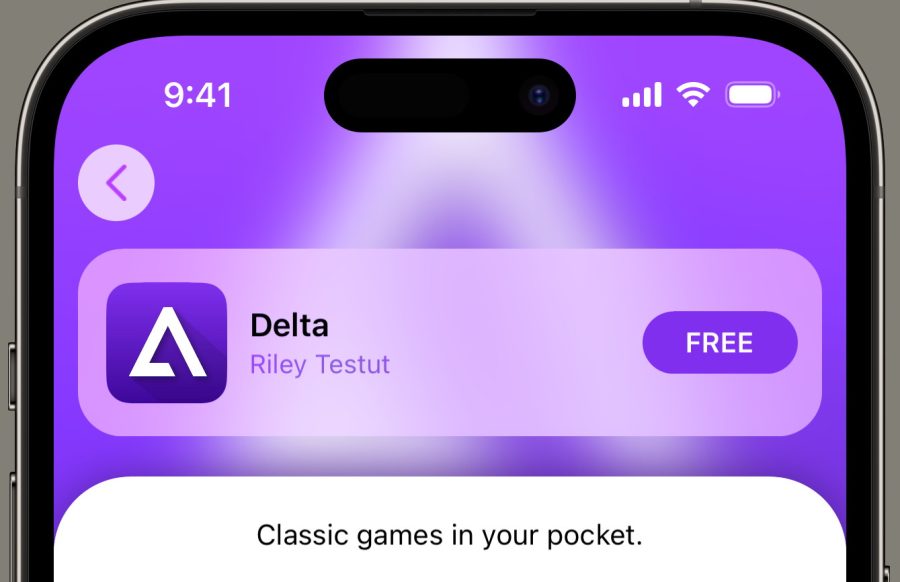When the iPhone welcomed third-party apps four years ago, the music industry, like everyone else, scrambled to find a revenue-generating angle. Band-specific apps began rolling out, highlighting musicians in the App Store. They haven’t exactly been smash hits, but this app category still has potential to promote not-so-starving artists.
If you slide down through the top 100 apps in the iTunes App Store’s music category, the list is dominated by software that helps you learn, create or subscribe to music in bulk. The odd artist-specific app pops up, but it’s swamped in a sea of chord guides, mini recording studios, social music apps and streaming services like Pandora and Spotify.

Early on, there were a few artist apps that got some attention. One of them was from the Presidents of the United States of America (PUSA), an alternative rock band with a few hits in the 1990s. The band released its entire back catalog in the form of a $2.99 iPhone app, allowing fans to stream four albums.
Music Trapped in an App
Why haven’t we seen more apps like this? For one, it’s hard for artists – especially new ones – to make money this way. The PUSA app effectively offered each album for 75 cents, less than the cost of a single song on iTunes. Artists groan about Spotify’s compensation scheme, but subscription services pay artists far more than that over an album’s shelf life. The PUSA offering was also born of a unique situation. The band owned the rights to its recordings and the former lead singer happened to work for a music-tech startup.
There’s also the matter of listener convenience. Putting aside financial and licensing issues, many consumers don’t want music that’s confined to its own app. Indeed, droves of consumers are listening to Spotify and Pandora, where they hope to find much of the music they love, even if they need to supplement it with tracks from their own iTunes library.
Last year, Bjork released a more innovative mobile offering: an immersive, deeply interactive iOS app to accompany her album Biophilia. The experience evoked memories of flipping through old-fashioned liner notes and, you know, actually paying attention to an album in one sitting. But it didn’t catch on.
Apps as Promotion

It’s unlikely that we’ll see many more full-catalog band apps. But that isn’t to say that branded apps can’t work for musicians. A more promising approach is to use apps as promotion, pure and simple.
Take Blur. The 90s Britpop band released an iOS app this week that serves as a promotional supplement to its forthcoming 21-disc box set. Some reviewers on iTunes grumbled that the app is little more than a marketing piece designed to push fans to buy the band’s released catalog. It is. And that’s exactly what apps like this are good for, at least for the right artist.
Blur’s app encourages fans to buy the band’s music, but it also contains lyrics, historical information and additional multimedia content. For free. There’s little to stop dedicated fans from downloading it. Whether they actually spring for the music is up to them.
Assuming a band has the fan base to justify the development expense, an app offering an immersive design, archival material, video clips and, of course, some music, ought to be worth the effort.
But why stop at the band’s own material? Evolver.fm’s Eliot Van Buskirk makes the compelling argument that artist-branded radio apps that play an artist-curated selection of music could not only please fans, but potentially make money.
The concept goes beyond the “similar artists” feature employed by Pandora and Last.fm to focus on music the artists themselves listen to and enjoy. “Radiohead’s Record Collection” playlist on Songza puts the idea into practice. A fan, using the band’s long-running blog as a resource, compiled a playlist based on music that members of Radiohead are known to enjoy. That has especially potent value to Radiohead fans and shows that there are still ideas to be tested in the expanding universe of music apps.










